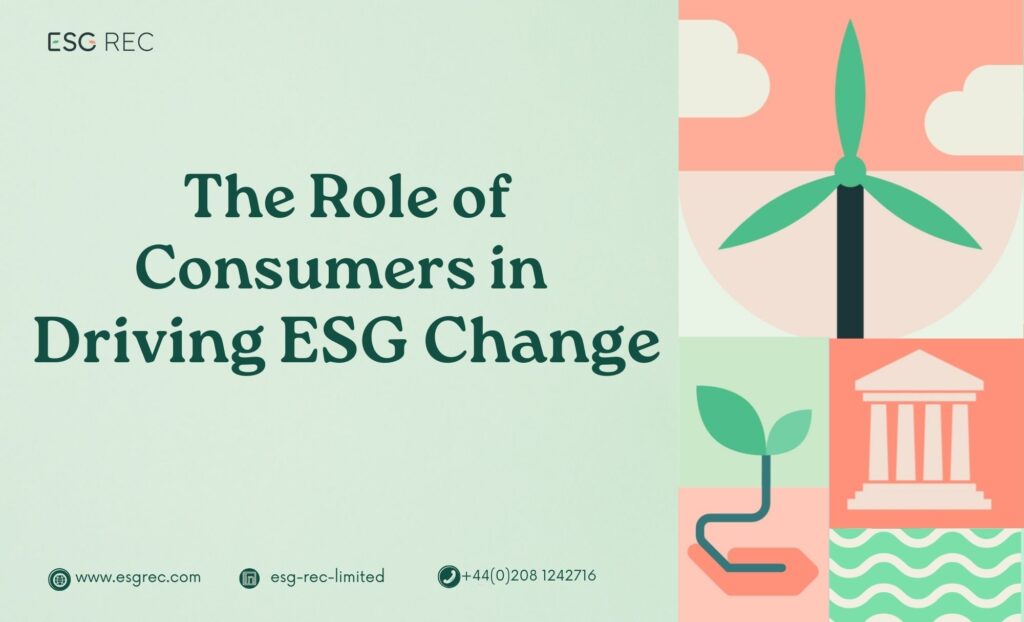
Join the movement for a more sustainable future! Visit www.esgrec.com to explore the latest ESG insights, trends, and solutions. Your choices matter—empower yourself with knowledge and drive real change!
In today’s rapidly evolving marketplace, UK consumers play a pivotal role in driving Environmental, Social, and Governance (ESG) change. With increasing awareness of climate change, social responsibility, and corporate ethics, modern consumers are leveraging their purchasing power to influence business practices. This shift in consumer behaviour has made sustainability a competitive advantage for companies willing to adapt.
The Rise of Ethical Consumption
Consumers in the UK are no longer just purchasing products based on price and quality; they are now considering the broader impact of their choices. Ethical consumption—buying goods and services that align with personal values—has gained momentum. This trend encompasses support for eco-friendly products, fair labour practices, cruelty-free goods, and companies committed to diversity and inclusion. According to a report by Ethical Consumer, the UK ethical market reached £122bn in 2022 (source).
Demand for Sustainable Products and Services
Sustainability is no longer a niche concern; it has become a mainstream expectation. UK consumers are actively seeking sustainable alternatives, whether in food, fashion, technology, or finance. Brands like The Body Shop, Oatly, and Waitrose have built strong reputations by embedding sustainability into their business models. Sustainable packaging, carbon-neutral production, and ethical sourcing have become essential components for companies aiming to stay competitive.
Consumer Advocacy and Corporate Responsibility
Beyond purchasing decisions, consumers are using social media, petitions, and boycotts to demand accountability from corporations. Greenwashing—when companies falsely claim to be environmentally friendly—is increasingly scrutinised, pushing businesses to ensure their ESG commitments are genuine. For instance, campaigns against fast fashion brands have led to increased transparency in supply chains and more sustainable production practices.
The Future of Consumer-Driven ESG Change
As consumer awareness continues to rise, businesses must respond by integrating ESG principles into their core strategies. Companies that fail to prioritise sustainability risk losing market share to competitors who authentically embrace change. Government policies and corporate regulations, such as the UK’s Green Claims Code, will further reinforce this shift, making ESG compliance not just an ethical choice but a financial imperative.
UK consumers have the power to shape a more sustainable and ethical world. Through informed purchasing decisions, advocacy, and demand for transparency, they can push corporations towards meaningful ESG commitments. As businesses recognise the financial and reputational benefits of aligning with consumer values, ESG-driven change will continue to accelerate.
Take Action Today!


